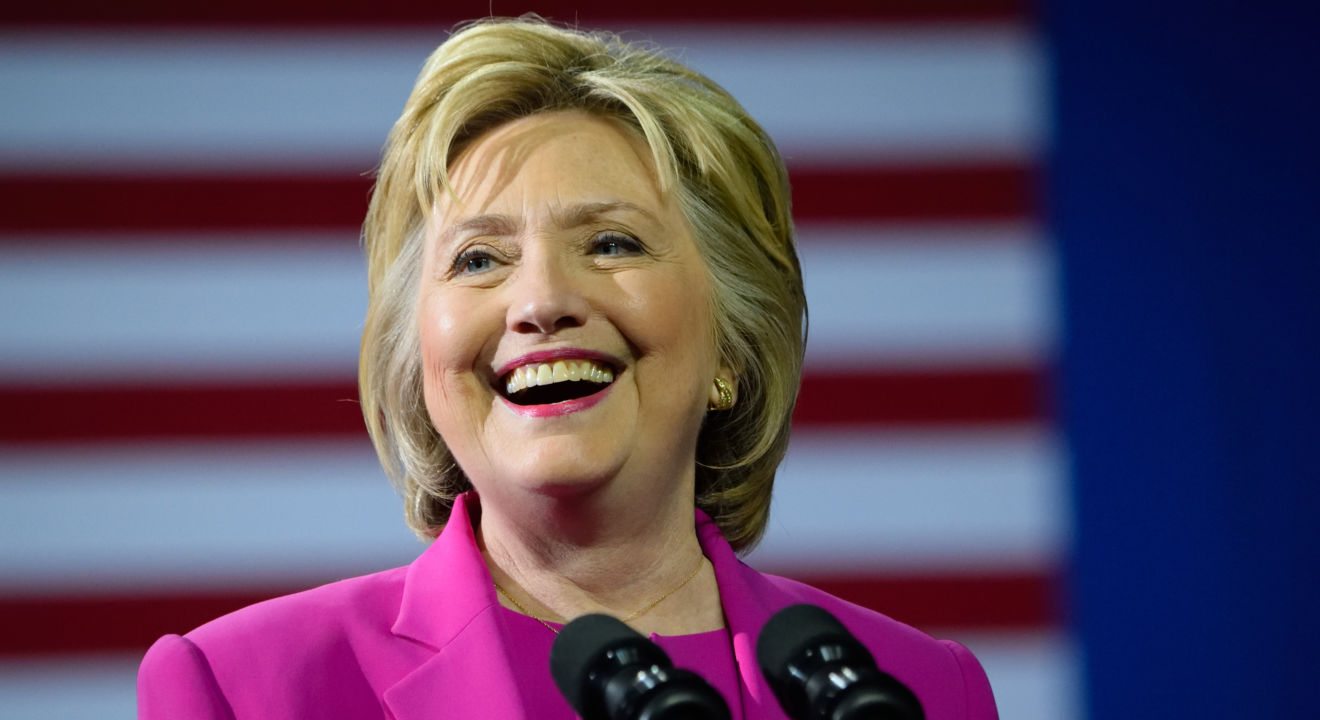Politics August 7, 2016


“The double standard is alive and well and I think in many respects the media is the principal propagator of its existence.”
– Hillary Clinton (2014 Women in the World Summit)
To serve as a disclaimer for this article, I, like many of my millennial peers, voted for Senator Bernie Sanders in the primaries.
But whether or not you like Hillary Clinton as a politician, it’s hard to ignore the way the media has portrayed the woman’s candidacy.
For one, how many of you actually know the extent of her credentials? Not only did Hillary graduate with honors from Wellesley and Yale Law, but she was also a teacher at The University of Arkansas, the chairwoman of the Legal Services Corporation, an investigator on the Watergate Committee, a board member of three public companies, a best-selling author, the first lady, a U.S. senator, the secretary of state and a co-chair of a global foundation.
In fact, it wasn’t until her husband, former President Bill Clinton, gave an endorsement speech about his lifelong love at last month’s Democratic National Convention that most people knew any of Hillary’s backstory. Her accomplishments. Her tenacity.
In college, Hillary was involved with social justice activism and has since continued by volunteering at the Yale Child Study Center in support of their research for early childhood development and at the New Haven Hospital to help victims of child abuse. The inspirational woman has also handled pro bono child welfare cases and founded the Arkansas Advocates for Children and Families.
But in the 25 or so years she’s been under the national spotlight, the media has been more focused on making Hillary Clinton the subject of countless stereotypes and criticisms. Why? Because she’s a woman? Because she’s a “stereotypical bitch“? Because she’s a “corporate Democratic whore”?
Hillary suffers the same kind of not-so-microaggressions that any woman would in the workplace. Hillary is “manipulative,” when any other male candidate would be “persuasive.” She’s “cold and distant,” while men who act the same way are “firm.” She’s also “too secretive,” but Barack Obama is “discreet.” And according to research on Ballotpedia, about 15 percent of 250 articles collected from the media are about her gender and character while another 15 percent are about her private email account and server. That’s already 30 percent of the articles focused on something other than her qualifications. Hillary apparently “needs to make the email scandal go away.” She “needs to apologize.”
From the time Hillary first declared to run for president in 2007 to today, her competence and identity as a woman have been attacked. For example, in October 2007, Peggy Noonan wrote in a Wall Street Journal column that Hillary “doesn’t have to prove she’s a man. She has to prove she’s a woman…She has to prove she has normal human warmth, a normal amount of give, of good nature, that she is not, at bottom, grimly combative and rather dark.” This kind of criticism is what happens whenever a woman becomes a powerful force in a “man’s job.” Because women are often assumed to be more open and welcoming, a woman who projects a different image will be judged for it.
In March 2008, conservative author Mark Rudov made a comment about how the “downside” of a female president includes “the PMS and the mood swings.” Even today, these same comments circulate the media. Even after years of successes, it’s disappointing to see that PMS is even considered a deal breaker. Yes, everyone, Hillary Clinton is a woman, but what else is she?
Although her Republican opponent, Donald Trump, has been blatantly sexist, racist, misogynist and outright rude in the past, people seem to be taking him more seriously now that he’s a legitimate contender. But unfortunately for Hillary, even after 25 years and two presidential candidacies, society’s expectations of her womanhood and its expectation of what a “real” presidential candidate should be are two opposing ideas that people can’t seem to see existing in one body. Hillary isn’t just being criticized for being a woman, but also for being the wrong kind of woman – as if there should even a specific kind.
To close, even Senator Sanders, her former opponent, said of Clinton, “I don’t know that a man would be treated the same way that Hillary is.” Whether or not there are legitimate criticisms about Hillary’s campaign, it’s hard to deny the amount of backlash she’s getting simply because she’s a woman.